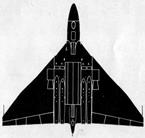SunlitZelkova
Posts: 209
Joined: 3/7/2018
Status: offline

|
quote:
ORIGINAL: AndrewNguyen1984
quote:
ORIGINAL: SunlitZelkova
quote:
ORIGINAL: BeirutDude
So on Taiwan, my personal take (and it goes for the Ukraine, Latvia, Lithuania, and Estonia as well) is it (they) are indefensible in the short run. The trick is to make them as indigestible as possible. If I were calling the shots (and thank God I am not) the Ukraine would be flooded with ATGMs, MANPADs, and other weapons systems to make Putin's task that much harder. For Taiwan. land based/boxed ASCMs and SAMs to take their toll on any PRC invasion force. That won't stop the PLA/PLAN/PLAAF but will make them pay for every inch of Taiwanese ground.
As far as landing any significant U.S./allied SOF, Airborne or Marines, in Taiwan (or the Baltics), IMHO, that's just dumb. Fighting "China's War" as they envision it is a recipe for disaster. Their Achilles heel is trade, resources and power projection. The USN/RN/ Australian Navy/JMSDF are better served destroying anything PLAN/PLAAF going east of the First Island Arc and eventually retaking Okinawa and other Islands lost (and they will be). Meanwhile we destroy China's trade routes/Merchant Marine/Silk Road Initiative infrastructure (bridges) until their economy crashes. Might take a year or two but they will collapse, and that makes any Taiwanese success a Pyrrhic Victory. Bottom line, is we have this idea we have to rush in and save Taiwan (or the Baltics), we can't, but we can take ultimate victory away from them with the long game.
Of course this all assumes nobody gets stupid with nukes...
BTW: I've through about this for a scenario but sinking merchants is pretty boring!
The problem with that approach though is that they (at least China) don't really care about casualties. They did not go through a 20 year counter-insurgency where 11 dying in a suicide blast became a disaster within the minds of their brass. In fact, the Communist Party has a little bit of a campaign going to popularize the Korean War- a conflict in which many, many Chinese casualties were incurred but they nonetheless achieved their goal of keeping North Korea intact- and spread the idea that mass death is not a thing to fear, especially within such a vital national issue on the table.
I think we in the West over estimate how much China really "needs" its economy in its current form. Given the centralized power whoever leads the Communist Party now has (in the near future, Xi, but in the 2030s and 40s who knows), with the wave of a hand it would be very easy to shift back to a command economy. Millions would die, but they have before, and a revolution is unlikely (for reasons explained below). I don't think the CPC necessarily wants to be part of the global economy if they are unable to for reasons like a war. Their opening up and economic reforms were always a means to the end of maintaining their hold on power, not an end in itself.
As far as scenario ideas go, I would suggest that rather than sinking merchants, have the player perform strikes on deep inland rail lines leading to Europe (like the Shanghai-London line) inside China or near China's borders. These lines would become vital trade links to Europe and Russia in the event of a seaborne blockade, and assuming the Central Asian and Middle Eastern nations are largely neutral in the conflict, trying to "get through/around them" would be an interesting challenge!
quote:
This is not the "Red China" of the 1950-70s. I get the impression that people there expect a better standard of living than they did back then and aren't as willing to suffer depravations. Then again I am getting my information 2nd hand from dubious American news sources. Do you really think your family would suffer personal economic depravations without speaking out. dare they speak out? Then there is the actually strategic resources, POL, and other imports necessary to actually fight a modern war. It is an interesting question.
The question of how willing the Chinese people are to "subvert" or protest the Chinese government is a hard one. It should be noted that China's COVID-19 lockdown was a sort of "15 second trailer" of what a US-China war might look like, given the huge drop in trade and the virtual halt of a lot of economic activities. Yet, no large scale protests are known to have taken place. On the other hand, especially as time goes on, Chinese people will become more and more accustomed to a decently high standard of living.
I think the main point to look at in trying to answer this question is whether the shortages are justified. The reason you have popular protests in countries like Iran is because the people feel the hardships they are enduring don't make sense and the government is not doing enough to solve the problem. But with Taiwan, there is a very strong feeling China is not the culprit, for the following reasons-
1. Cross straight relations were stable until the DPP came to power, and then the US started what is viewed (by many in China) as a hostile crusade against Chinese modernization (with Taiwan just being the "West Berlin" to the US' "subvert and gain influence in Western Europe" as the Soviets *did*).
2. Regardless of who "should control China" (a democracy or the CPC), whether Taiwan is part of China or not is not really debated inside China, as far as I can tell. Many have compared the current situation to a reverse Cuban Missile Crisis, with the US in someone else's backyard instead, but rather than Cuba, Taiwan is more like China's Texas- an inherent part of the country proper. Regardless of whether 70 years after the end of active conflict in the Chinese Civil War, Taiwan has a right to become independent or not, historically it is undeniable Taiwan *can* be considered part of China.
Even if China were to attack Taiwan "unprovoked" the state media is still propagating the narrative that all of this is in response to US and other foreign behavior regarding Taiwan, and therefore it is very probable many would consider the hardships justified. Especially the CPC's response (or at least, the latter part of the response) to COVID-19 has reinvigorated its statements regarding its ability to protect the Chinese people and their livelihoods *in the long run*. There is also possibly a "my country right or wrong" mentality among people in China, and especially given the CPC's modernization success prior to the war, the party would have legitimate reasons to remain in power, even if the economy were to be wrecked.
Also, because of all of this, I believe it to be very likely nuclear weapons would be used eventually in US-China conflict. AndrewNguyen1984's personal beliefs aside, I think the US, Japan, and Australia have a good shot at intervening against and preventing a full Chinese seizure of Taiwan, but if they do that, the CPC will feel forced to use nuclear weapons, given that their legitimacy, along with a valid issue on the part of Chinese nationalism and sovereignty, are on the line. Then we retaliate, and they retaliate, and then...
In regards to resources, I'm not sure. China does have indigenous oil resources, and presumably a decent stockpile. I do not know of what else China lacks internally, but modern PGMs and such aren't exactly mass produced or replaced anyways, and they certainly have what they need to independently produce dumb munitions/old school equipment en mass as they did in the 60s and 70s. So whether it matters in the first place is also something that needs to be asked. I recall a similar thread about what happens when PGMs run out a while back.
Note- I recognize the latter quote was directed towards nogravity but I thought I would reply too 
-----------------
https://www.ft.com/content/a127f6de-f7b1-459e-b7ae-c14ed6a9198c
So there is now a claim that the supposed FOBS-HGV test "launched a missile" while flying over the South China Sea. I am a member of a space-related forum as well and this is being treated with extreme skepticism. If it is true, it probably means this "HGV" was actually a spaceplane.
This possibility is actually more scary. FOBS does not actually put a warhead into orbit, it reaches orbital velocity to extend range, and it can't be re-targeted after launch, and therefore isn't really an "orbital bombardment system". But a spaceplane bomber would be a nuclear weapon capable of dropping down anywhere with little warning.
That said, this claim and the FOBS-HGV itself is very dubious, mainly because of the lack of sources to back it up. I think we need to wait for reports to Congressional intelligence committees to see if this pops up before fully considering it to be confirmed.
In any case, I don't think any of that matters by the way. The US has a very robust strategic chain of command and early warning systems like STSS/SBIRS that negate FOBS and even hypothetical spaceplane bombers.
A lose lose situation all around then. We either lose by letting the Chinese have Taiwan or lose by going in with nukes. As the old saying goes, pick your poison.
I'm not sure what anyone (high ranking military officials, politicians, the general public) is expecting. In 2021, or at any point in time since about 1960, there will not be a great power conflict between two peer competitors that has a "happy ending" or "real" victory. It will always escalate to nuclear war. If I am wrong and a US-Japan-Australia intervention in a Taiwan conflict were to fail, they would probably end up being the ones to use nuclear weapons.
What people (in real life, not on this forum) seem to be trying to do is like trying to find a "solution" to if the Soviets attacked and took complete control of West Germany. There is/was no solution- either NATO uses tactical nuclear weapons and then it escalates to full scale nuclear war, or NATO defeats the Soviets and they use tactical nuclear weapons and then it escalates into nuclear war.
That's not to say any of that is inevitable. This isn't a Cold War proxy war with domino theory and other nations at threat (Taiwan is an island after all). Attacking and occupying what is technically a disputed territory is very different from a full blown invasion of a sovereign nation like Japan or Vietnam. Taiwan is by no means a vital "battle" in the "(new Cold) war", and assuming one's goal is to preserve peace, the US and friends should look at drawing their red lines elsewhere.
That said, because of the ambiguity surrounding this "new Cold War", it doesn't seem the US government really knows what its goal is. If it is more like the interwar period of the 1930s, where you do what you can with diplomacy but are prepared to and will go to war when necessary, then that works too (I still firmly believe the US, Japan, and Australia could successfully intervene against a Chinese attack on Taiwan. I am not asking you to- you are entitled to your opinion- but that is what I believe personally  ). ).
_____________________________
Formerly known as Project2035, TyeeBanzai, and FlyForLenin
|
 Printable Version
Printable Version














 New Messages
New Messages No New Messages
No New Messages Hot Topic w/ New Messages
Hot Topic w/ New Messages Hot Topic w/o New Messages
Hot Topic w/o New Messages Locked w/ New Messages
Locked w/ New Messages Locked w/o New Messages
Locked w/o New Messages Post New Thread
Post New Thread